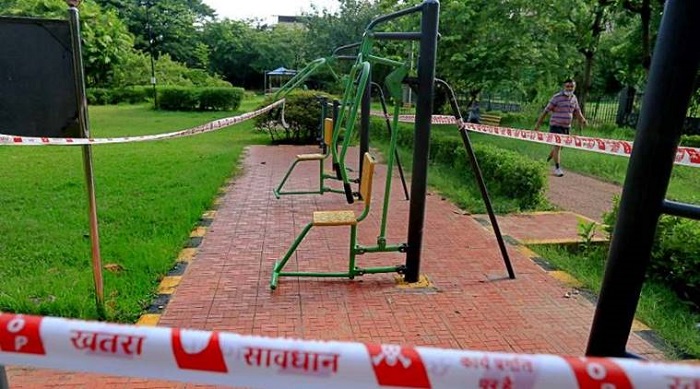May 12: Children suffering from non-respiratory disease symptoms like diarrhea and fever, or those with a history of exposure to the novel coronavirus, should be suspected of having COVID-19, a new study says.
According to the research, published in the journal Frontiers in Pediatrics, gastrointestinal symptoms first suffered by some children hints at potential infection with SARS-CoV-2 through the digestive tract.
"This case series is the first report to describe the clinical features of COVID-19 with non-respiratory symptoms as the first manifestation in children," the scientists from Tongji Hospital in China wrote in the study.
They explained that the gastrointestinal symptoms could be arising since the type of receptors in lung cells targeted by the virus can also be found in the intestines.
Most children are only mildly affected by COVID-19, and the few severe cases often have underlying health issues, the researchers said.
"It is easy to miss its diagnosis in the early stage, when a child has non-respiratory symptoms, or suffers from another illness," said study co-author Wenbin Li, who works at the Department of Pediatrics, Tongji Hospital.
"Based on our experience of dealing with COVID-19, in regions where this virus is epidemic, children suffering from digestive tract symptoms, especially with fever and/or a history of exposure to this disease, should be suspected of being infected with this virus," Li said.
In the study, the scientists described the clinical features of children admitted to hospital with non-respiratory symptoms, who were subsequently diagnosed with pneumonia and COVID-19.
"These children were seeking medical advice in the emergency department for unrelated problems, for example, one had a kidney stone, another a head trauma," Li said.
The study noted that all the children had pneumonia, which was confirmed by chest X-ray scan before or soon after admission.
These children were then confirmed to have COVID-19.
While their COVID-19 symptoms were initially mild or relatively hidden before their hospital admission, four out of the five cases had digestive tract symptoms as the first manifestation of this disease, the researchers said.
Li hopes that doctors will use the findings to quickly diagnose and isolate patients with similar symptoms, which may aid early treatment and reduce transmission.
According to the researchers, the children's gastrointestinal symptoms, which have also been recorded in adult patients, could be an additional route of infection.
"The gastrointestinal symptoms experienced by these children may be related to the distribution of receptors and the transmission pathway associated with COVID-19 infection in humans," Li explained.
Since the virus infects people via the ACE2 receptor, which can be found in certain cells in the lungs as well as the intestines, COVID-19 might infect patients not only through the respiratory tract in the form of air droplets, but also through the digestive tract by contact or fecal-oral transmission, the study noted.
While COVID-19 tests can occasionally produce false positive readings, Li said all the five children assessed in the study were infected with the disease.
However, he cautioned that more research is needed to confirm their findings.
"We report five cases of COVID-19 in children showing non-respiratory symptoms as the first manifestation after admission to hospital. The incidence and clinical features of similar cases needs further study in more patients," he said.






Comments
Media is giving half report. As this issue relates to bjp, hired media is not giving true figure of explosives + ammunitions seized. There is a report that scores of weapons and bags full of explosives are seized but media is showing only 10 percent of it. Even the inspectors are hiding the figure. However, we common man wants to know the fact. We want to know reason why bjp offices are turned into godown of ammunitiions, explosives, evm machines, ballot papers, voter id cards, adhaar cards etc etc. Why investigating agencies are shut their mouth.
If this news is true then why he not called terrorist.
What type of award central govt will give. For such offenders and to their god fathers a strict punishment must given. Don't spare , for pocessing arms and amuntion remember Sunjay Dut case. All must deported from Maharashtra to Andaman for ever.
Real face of BJP/RSS party
Add new comment